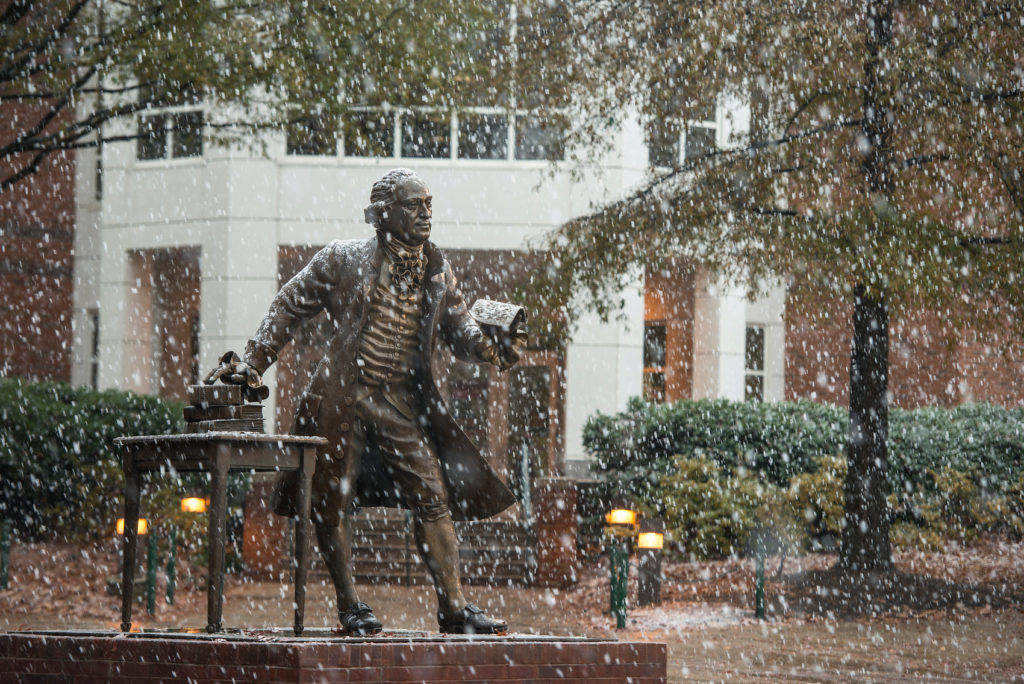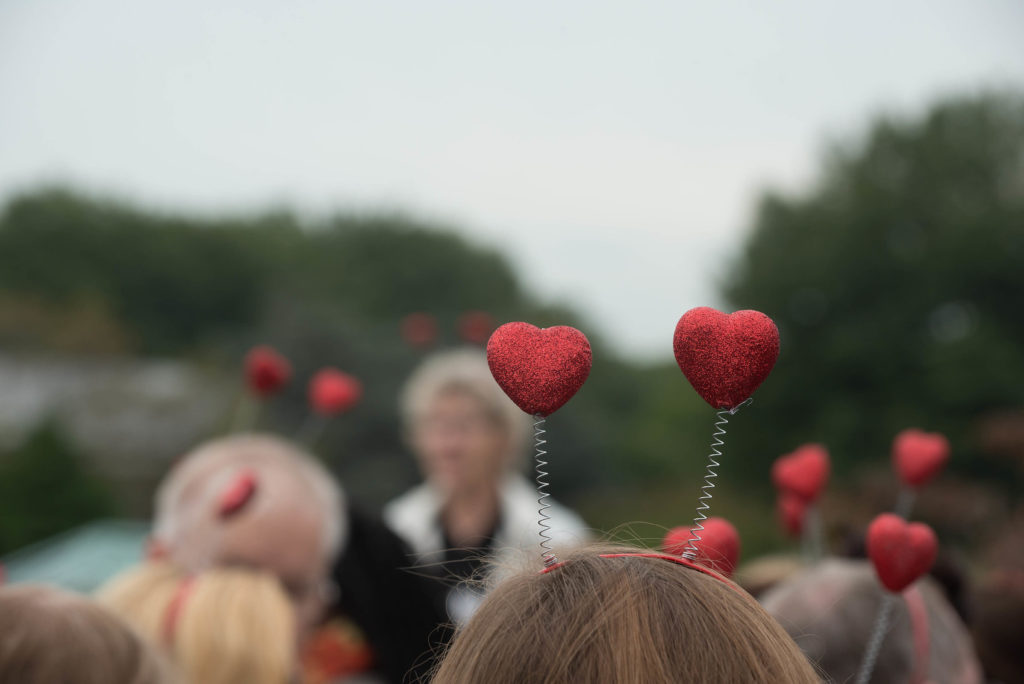
Is your student prepared for a weather-related emergency? Whether they live in a residence hall or an off-campus apartment, share these tips with them and make sure they are ready for an emergency — especially if that emergency means a loss of power.
Emergency Items to Keep on Hand
- Non-perishable food (i.e. canned foods, nuts, dried fruit, protein bars, etc. Include things that don’t need to be heated in case you lose power — tuna packets or peanut butter and crackers are a good option.)
- Bottled water
- Basic first aid kit
- Basic tool kit
- Extra blankets and warm clothing (a sleeping bag always comes in handy)
- Back-up power banks for charging electronics
- Flashlight, headlamp and/or camping lantern with extra batteries. An old-fashioned hand-cranked flashlight is a good idea, too.
- A supply of any medication they need regularly
- Hand sanitizer and baby wipes (which can be nice for cleansing; just don’t flush them)
- Battery-operated transistor radio
It’s also important that your student know how to get information or updates on the situation, whether from Mason or their landlord. Mason has an emergency broadcast system in place called Mason Alert, and your student should make sure they are receiving notifications. Your student can sign you up for the Mason Alert Emergency Notification System at ready.gmu.edu/masonalert. All university MasonLive email accounts are automatically signed up for the Mason Alert system. Students can register phone numbers for emergency text messages through PatriotWeb.
Beyond staying up to date on the situation, it’s crucial that your student know who to contact if they need help whether it be 9-1-1 or a campus emergency number. And if your student is far from home, it’s always a good idea to make sure they have a local contact person they can turn to during a difficult time, whether it’s a family friend, relative or the family member of one of their Mason friends.
Your student can call University Police at (703) 993-2810 or by dialing 9-1-1 from any on-campus phone for emergency situations. In order to reach the Environmental and Safety Office, your student should call (703) 993-8448.
Do Not Venture Out During Unsafe Conditions
In the case of potential flooding from a hurricane or tropical storm, or during an event of extreme snow and cold, your student should take extra precautions and not leave their residence hall or home unless advised that it’s safe to do so. In addition to heeding safety recommendations from Mason, they should tune into severe weather advisories for Northern Virginia.
If Your Student Lives Off Campus
Your off-campus student may need to shoulder a little extra responsibility in emergency situations. It’s possible that they will need to take initiative and contact their landlord and utility company for advice on what to do to keep their house safe. Fortunately, many student leasing companies know the drill and are proactive in providing tips to first-time renters — landlords have an incentive to protect property and appliances from damage, after all.
Here are things your student should not do in an emergency situation, especially if they have lost access to power and water:
- Don’t use candles as a light source. If you must, make sure not to use too many at once as candles can easily tip over. Pillar candles and candles in glass jars are the most stable. Never leave a lit candle unattended!
- Don’t play on your phone. It’s tempting to use your electronics as a source of entertainment through the boredom, but it’s much better to conserve your phone’s charge for important communications.
- Don’t open the fridge or freezer. Both are well insulated and will preserve their temperature for a while as long as you don’t release the cold air. (According to the U.S. FDA, refrigerated food will stay cold for about 4 hours during an outage and the freezer can do its job for 24–48 hours.)
- Don’t waste water. Apart from clean bottled water for drinking, if you anticipate losing power, make sure to fill your bathtub with water for things like flushing the toilet or washing your hands.
- Don’t run your car for warmth or power unless you absolutely have to. You may need a full tank of gas later on. Never run the car in the garage!
Keep Tabs on Developing Situations
Sometimes emergencies catch us by surprise but at other times, especially when extreme weather is involved, we may have some advance warning. If your student is aware of a developing situation or simply has a bad feeling about it, they can make sure they are prepared for the worst case scenario. Things like making sure their power banks are fully charged and checking on their supply of candles and food can truly make all the difference.
Originally published in Collegiate Parent
*To receive more articles like this straight to your inbox, sign up for the Mason Family Association at gmu.edu/mason-family-association.

 Mason is home to Virginia’s largest and most diverse student body, and we rank among the most diverse universities in the nation.
Mason is home to Virginia’s largest and most diverse student body, and we rank among the most diverse universities in the nation. Do you know your student’s Love Language? Developed by Gary Chapman in 1992, the Love Languages are a way to describe ways that one feels most appreciated or loved. If you aren’t familiar with the 5 languages, you can take the quiz for yourself and then also have your student take it!
Do you know your student’s Love Language? Developed by Gary Chapman in 1992, the Love Languages are a way to describe ways that one feels most appreciated or loved. If you aren’t familiar with the 5 languages, you can take the quiz for yourself and then also have your student take it!  We are excited to share the many wonderful programs and events brought to you by Mason student organizations, departments/units, and academic colleges. Black/African Heritage Month is under the leadership of Student Engagement for Racial Justice within Mason’s Center for Culture, Equity, and Empowerment.
We are excited to share the many wonderful programs and events brought to you by Mason student organizations, departments/units, and academic colleges. Black/African Heritage Month is under the leadership of Student Engagement for Racial Justice within Mason’s Center for Culture, Equity, and Empowerment.